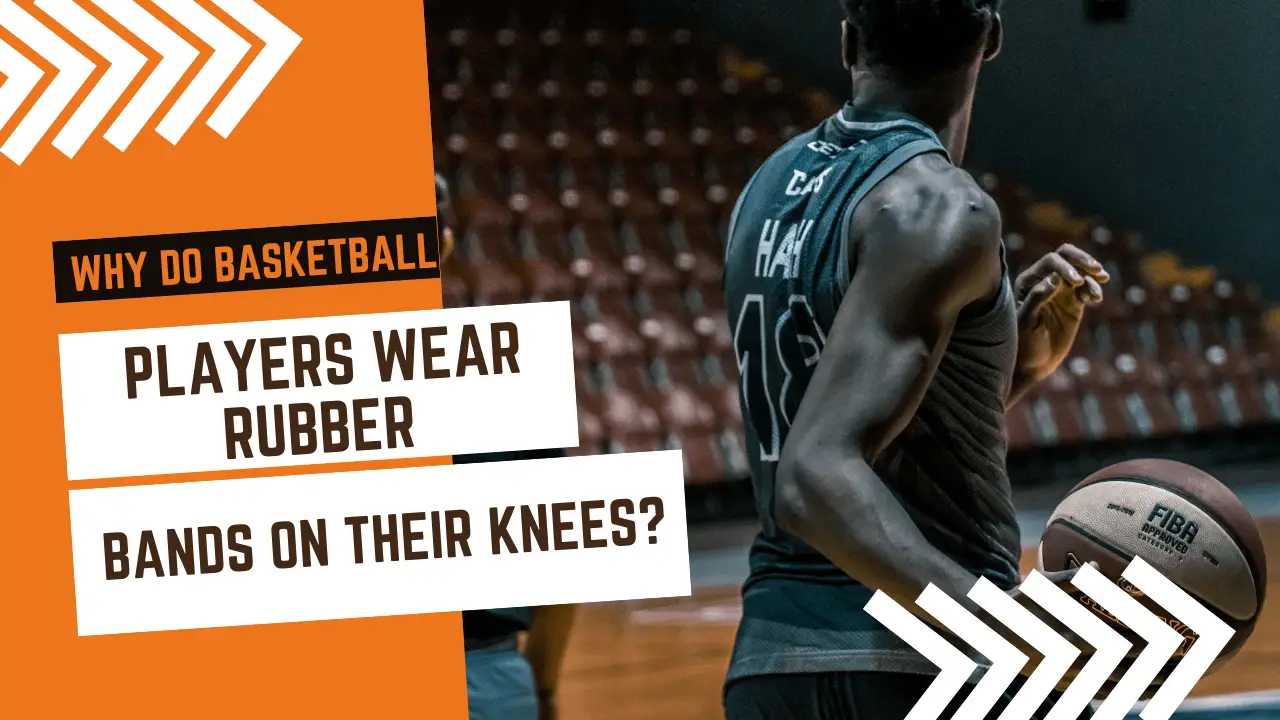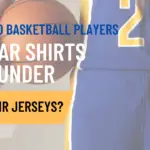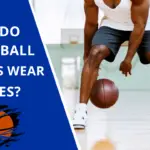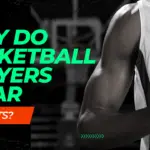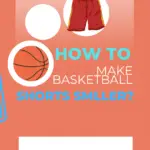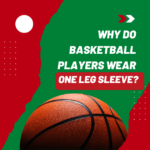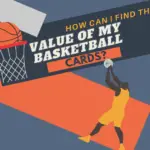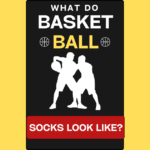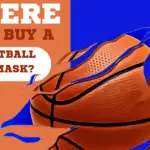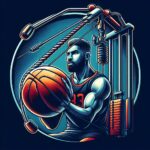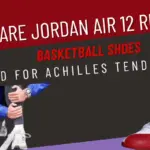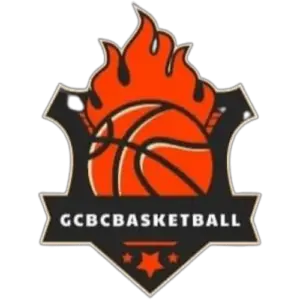There are a few reasons why do basketball players wear rubber bands on their knees.
Reasons Why Do Basketball Players Wear Rubber Bands On Their Knees
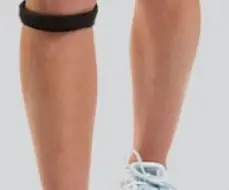
To Increase Blood Flow:
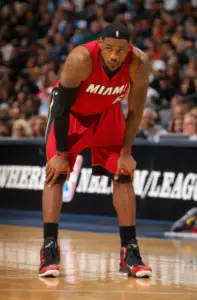
Rubber bands help to increase blood flow to the knee joint. This is important because it helps reduce inflammation and swelling in the joint, leading to pain and stiffness. Additionally, the increased blood flow can help speed up the healing process if you injure your knee while playing.
To Reduce Friction:
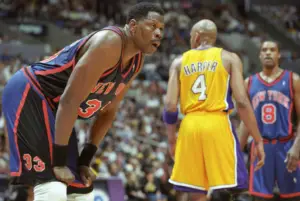
Wearing knee rubber bands can help reduce friction and support the joints. Rubber bands are not just for athletes; they can also be worn by anyone who wants to reduce friction in their everyday life. If you have sensitive skin or are prone to chafing, wearing rubber bands on your knees can help prevent these problems.
To Increase Ball Control:
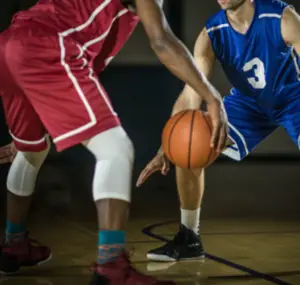
Rubber bands help to increase ball control. The bands provide resistance, which helps to improve the player’s shooting accuracy and dribbling skills. Wearing the bands also helps to increase the player’s vertical jump height.
Do Knee Bands Help With Knee Pain?
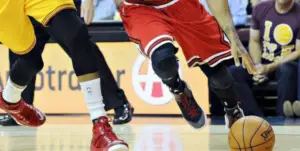
Yes, knee bands can help to stabilize the knee joint and reduce pain. They work by providing support to the ligaments and tendons around the knee. This can help to prevent injuries and also reduce pain from existing injuries. In addition, the compression from the knee band can help to reduce inflammation.
What Knee Injuries Require A Sleeve Or A Brace?
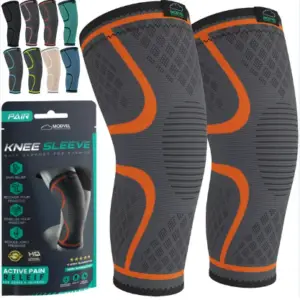
Several different types of knee injuries may require a sleeve or brace.
An anterior cruciate ligament (ACL) tear is the most common type of knee injury. This type of injury can be severe and may require surgery to repair.
Other common knee injuries include meniscus tears, patellar tendinitis, and patellofemoral pain syndrome.
What Are The Types Of Bands, Sleeves, Or Braces For Basketball?
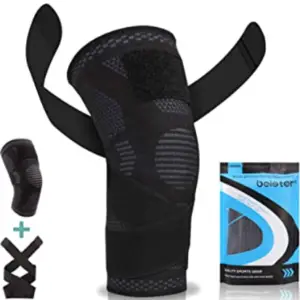
Several different types of bands, Sleeves, or Braces are available for basketball players.
Patellar Tendon Straps:
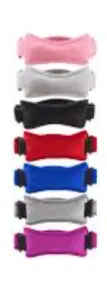
Wearing a patellar tendon strap helps to evenly distribute the force across the tendon, which reduces pain and inflammation.
Patellar tendon straps are also used to prevent patellar subluxation when the kneecap moves out of place. The strap helps to keep the kneecap in alignment, which reduces pain and improves function.
Compression Knee Sleeves:
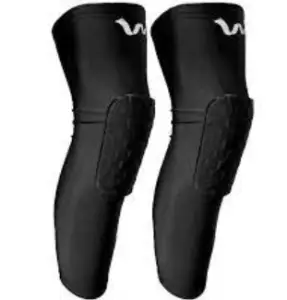
Wearing a compression knee sleeve can also help increase blood flow to the knee and reduce swelling. Compression knee sleeves are made of elastic material that fits snugly around the knee, providing support and stability.
Hinged Knee Braces:
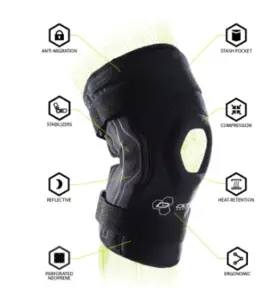
Hinged knee braces are a type of support typically worn by athletes to help prevent knee injuries. The braces provide extra stability to the knee joint, which can help prevent ligament tears and other common injuries. While hinged knee braces are not required for all athletes, they are often recommended for those who participate in high-impact sports such as basketball, football, and soccer.
How Do You Choose The Right Sleeve, Band, Or Brace For Basketball?
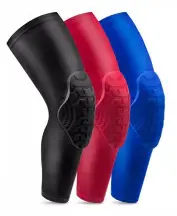
Here are a few things to keep in mind when making your decision:
- Consider the level of support you need. If you have previous knee injuries or are prone to joint pain, you’ll want to opt for a supportive sleeve or brace.
- Think about comfort and breathability. You’ll be wearing this product for long periods of time, so make sure it’s comfortable and won’t make you too sweaty.
- Make sure it fits properly.
Can You Wear a Knee Band All Day?
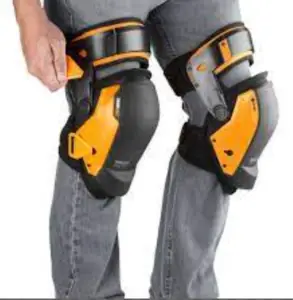
Knee bands can provide relief from both basketball-related injuries and related swelling and pain. While wearing knee bands all day is okay to be comfortable, periodic breaks should be necessary to avoid skin irritation and allow the joint to move.
Conclusion:
In conclusion, basketball players wear rubber bands on their knees to help with their shooting. The bands help keep the players’ knees from moving too much, affecting their shots. Wearing the bands also helps to remind the players to keep their knees bent when they shoot. By wearing the bands, players can improve their shooting accuracy and consistency.
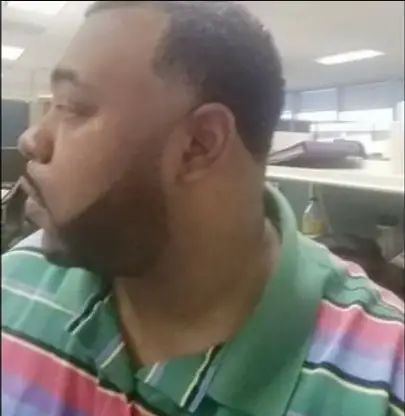
Clyde Jackson III is a basketball coach and the founder of GCBC Basketball, a basketball-related learning and informational website that focuses on helping young players develop their skills on and off the court. With over 15 years of coaching experience, Clyde has worked with players of all ages and skill levels, from beginners to professionals.

